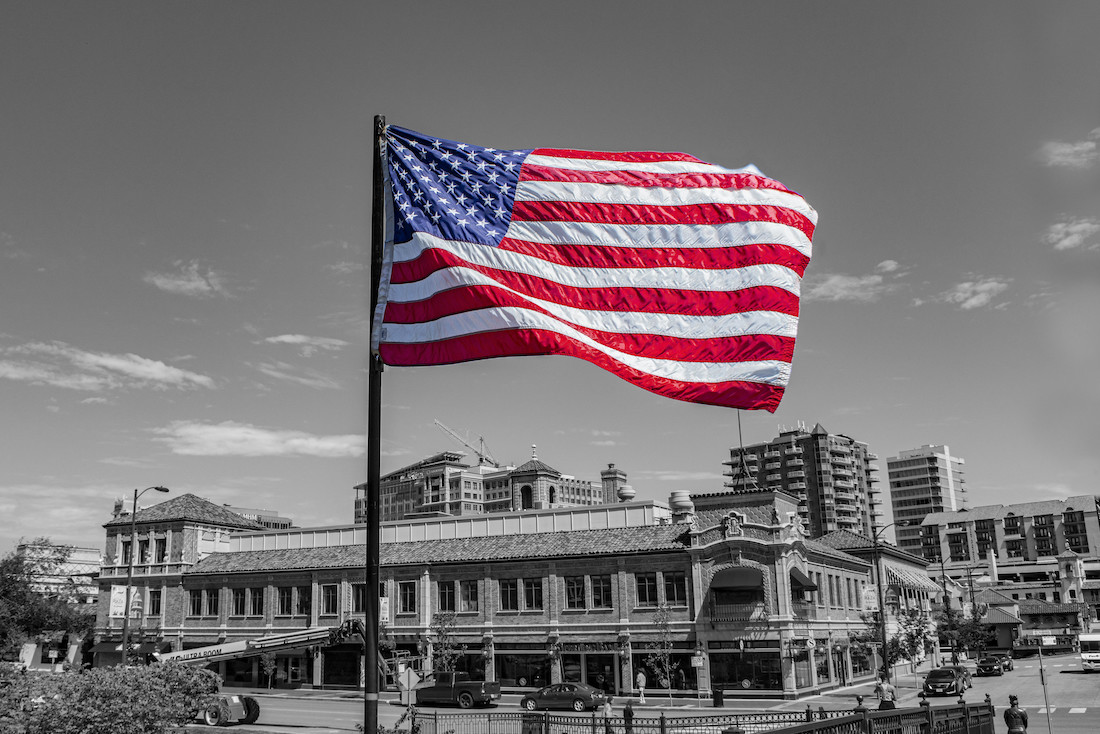From the ancient Greeks and Romans – from Heraclitus and Polybius to Livy – Western civilization came to accept the idea that all governments, but especially free ones, go through distinct organic and biological stages. They are born, they grow old and corrupt, and they die. Many, such as Livy, focused on the death aspect of this cycle, arguing that Rome had been declining from its very origins.
In looking at the history of Rome, he wrote, “I would have him trace the process of our moral decline, to watch, first, the sinking of the foundations of morality as the old teaching was allowed to lapse, then the rapidly increasing disintegration, then the final collapse of the whole edifice.” Livy asked how this happened. His answer for ancient Rome could readily fit modern America: “Of late years wealth has made us greedy, and self-indulgence has brought us, through every form of sensual excess, to be, if I may so put it, in love with death, both individual and collective.”
Indeed, the entire history of Rome was the history of moral decline. Certainly not alone in his worries, Tacitus agreed with Livy, seeing in the Germanic peoples of Europe the hope of regeneration and rebirth.
America’s Founding Fathers were deeply concerned with this inevitable, organic cycle, believing that, though young, America could readily fade if her people lost their way morally, ethically, and spiritually. “We wish for the duration of her virtue; we sigh at every appearance of decline; and perhaps, from a dread of deviations, we may be suspicious of their approach when none are designed,” proclaimed Mercy Otis Warren (1728-1814), a forgotten founder and Anti-Federalist, in her 1805 history of the American Revolution. America, she continued, “has in great measure lost her simplicity of manners, and those ideas of mediocrity which are generally the parent of content; the Americans are already in too many instances hankering after the sudden accumulation of wealth, and the proud distinctions of fortune and title. They have too far lost that general sense of moral obligation, formerly felt by all classes in America.”
If historian Gordon Wood is correct in his assessment of the matter in his work The Radicalism of the American Revolution, Warren was not only not alone in her fears, but she also echoed the fears of nearly every other American founder. Indeed, Wood insists, almost every single one of the Founding Fathers had concluded by the end of his individual life that, though America remained a republic in name, it had already lost its soul and would soon die a profound death. In Wood’s retelling, only Maryland’s Charles Carroll of Carrollton (1737-1832) remained optimistic about America’s future, albeit cynically so. In this, Wood was mistaken; Carroll of Carrollton – the longest lived of the American founders – had lost hope, as well. From the American founding onward, a constant theme in American history had become fearing, identifying, and proclaiming the end of the republic. One need look no further than Thomas Cole’s 1833-1836 series of paintings, The Course of Empire, to see in a powerful visual medium the life and death of societies, especially republics.
Fast-forward to the year of our Lord 2020. We live in a time of extreme confusion. Our society is as wealthy as any society ever has been. And yet, for us, there is no contentment. While racial injustices have certainly and horrifically occurred on some of our urban streets, our cities overall have become nearly uncontrollable as angered crowds and legitimate assemblers vie with roving bands of lustful looters, pillaging plunderers, and mayhem-fueled murderers. Statues topple, fists fly, and torrents of furious words spill forth. Protestors build guillotines, declare themselves autonomous, and threaten “more blood in the streets.”
Meanwhile, our politicians serve not the common good, but their own personal interests and the interests of their party. “I am the Democratic Party,” one politician claimed recently, in a moment of egotistical Manicheanism. When asked about the extreme revolutionaries advancing violence in several American cities, he simply said they were motivated by an “idea” and were not organized in any menacing way.
If ever there were a time for despair in American history since the dread days of the American Civil War, 2020 is it. Is the republic truly over? Have we gone into extreme middle age and corruption, hovering over the valley of death? Have we reached the end? These are certainly not absurd or fanciful wonderings.
One of Western civilization’s greatest thinkers and a man who lived through a moment similar to ours, Edmund Burke (1729-1797), would say “no.” We have not reached the end, and quite possibly, we will not for hundreds if not thousands of years. He more or less rejected the idea that all societies go, inevitably and inalterably, through stages of birth, decline, and death.
Still, Burke’s world looked bleak, as bleak as ours does. Burke – an advocate of American independence as well as rights for the Irish, Asian Indians, and British Roman Catholics – had done everything in his power to oppose the French Revolution. He opposed not just the revolutionaries, but the very collectivist and atheistic ideas that animated the French Revolution. They were analogous, Burke knew, to a disease, an infection, that once let loose would spread into every part of the world.
Rightly, Burke believed that the French Revolution signified nothing less than a European civil war, with revolutionaries not confined to France but to be found in every part of the continent. England herself, Burke lamented in the mid-1790s, was probably one-fifth lost to the revolutionary sentiment. Though extremists probably represented only 20% of the population, that minority could undermine much of England in her domestic and (especially) in her foreign policy.
Yet whatever setbacks might threaten the English people, as well as to his own reputation, Burke maintained hope in the struggle against the revolutionaries. He wrote:
We are therefore never authorized to abandon our country to its fate, or to act or advise as if it had no resource. There is no reason to apprehend, because ordinary means threaten to fail, that no others can spring up. Whilst our heart is whole, it will find means, or make them. The heart of the citizen is a perennial spring of energy to the State. Because the pulse seems to intermit, we must not presume that it will cease instantly to beat. The public must never be regarded as incurable.
What gave Burke such faith, especially in his denial of what had been regarded as Polybian or Livian truths, staples of Western thought and civilization? The individual human person, Burke knew, was an infinite creature made in the image of an infinite God. Each person, as Pope John Paul II would state in the twentieth century, is an unrepeatable center of dignity and freedom, thus always providing a new face of God to the world. Each human person is, thus, a new hope, a new possibility, a renewal of love.
In a speech to Parliament, Burke became downright metaphysical and theological about this critical thought. It is well worth quoting Burke at length on this, especially as he wrestles with the theological issue of free will and fate, finding a harmonizing sentiment of the two:
Taking it for granted that I do not write to the disciples of the Parisian philosophy, I may assume, that the awful Author of our being is the author of our place in the order of existence; and that having disposed and marshalled us by a divine tactic, not according to our will, but according to His, He has, in and by that disposition, virtually subjected us to act the part which belongs to the place assigned us. We have obligations to mankind at large, which are not in consequence of any special voluntary pact. They arise from the relation of man to man, and the relation of man to God, which relations are not matters of choice. On the contrary, the force of all the pacts which we enter into with any particular person or number of persons amongst mankind, depends upon those prior obligations. In some cases the subordinate relations are voluntary, in others they are necessary – but the duties are all compulsive. When we marry, the choice is voluntary, but the duties are not matter of choice. They are dictated by the nature of the situation. Dark and inscrutable are the ways by which we come into the world. The instincts which give rise to this mysterious process of nature are not of our making. But out of physical causes, unknown to us, perhaps unknowable, arise moral duties, which, as we are able perfectly to comprehend, we are bound indispensably to perform.
In other words, while we have no choice about the situation into which we are born – our parents, our ethnicity, our country, and our language – once we reach the age of reason, every choice we make until our last breath is a moral and ethical one.
In his last days, in 1797 – when the French Revolution seemed more powerful than it ever had before and Britain as weak as it had ever been – Burke persisted in his arguments for human dignity and against revolutionary ego. “Never succumb to the enemy,” he told an ally as he approached death. “It is a struggle for your existence as a nation; and if you must die, die with the sword in your hand; there is a salient, living principle of energy in the public mind of England which only requires proper direction to enable her to withstand this or any other ferocious foe; persevere til this tyranny be overpast.”
If Polybius, or Livy, or Mercy Otis Warren is correct, we as Americans might very well be at the beginning, in the middle, or near the end of the grand republican experiment. Regardless, Burke is certainly correct, and we must take into account every last remaining heartbeat. Whatever the situation of our world – no matter how dreadful it might seem at the moment – we must act morally and ethically, no matter the circumstances. Each of us, therefore, must serve as a new (if finite) face of infinite wisdom. All the looters, murderers, plunderers, and mayhem-makers in the world cannot change the moral fabric of the universe – or our duty to it.
For now, America remains.

